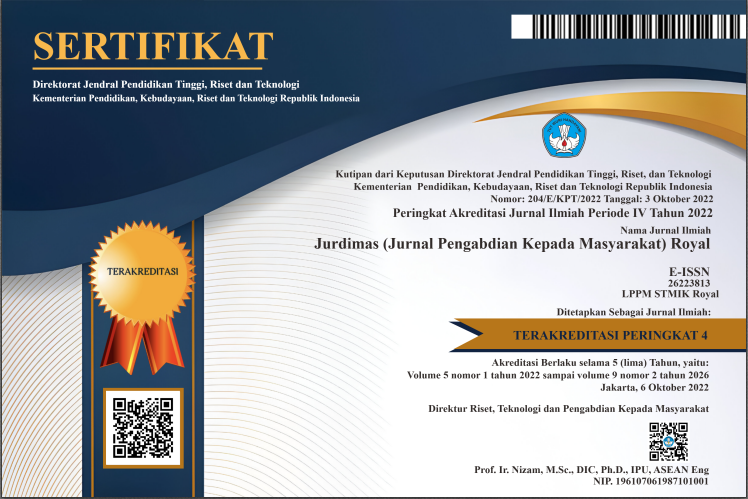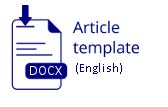Toefl Preparation Class in Non EFL Classroom: How is it Impactful on The Non-EFL Learners’ Achievement?
Abstract
Having problem of reaching the tested aspects of TOEFL particularly on achieving target score of TOEFL set, participants needed to be provided an intervention with TOEFL preparation class before encountering the test. For that reason, this community service activity highlighted the impact of TOEFL preparation class on the non EFL learners’ achievement. One class was used as the sample of this activity in which it consisted of twenty students coming from different major in one of private universities in Palembang, southern region of sumatera. Descriptive analysis with experimental design was used. A test was administered to see whether or not there was a significant improvement on the non EFL learners’ TOEFL-like score achievement. The results revealed that achievement level of the participants were in the elementary and intermediate category. Besides, statistically there was a significant improvement on the EFL learners’ TOEFL-like score intervened by the provision of TOEFL preparation class. Thus, it could be further concluded that TOEFL preparation class was impactful on the non EFL undergaduates’ English achievement.
Keywords: TOEFL preparation class; Non EFL Classroom; Non EFL learners’ achievement
References
Ang-Zie, K. (2016). Preparation and Practice Exam TOEFL. Yogyakarta: Genta Group.
Aziz, A. L. (2016). The implementation of minimum TOEFL score-obtaining as a graduation requirement in higher education: students' perspective. International Journal of Management and Administrative Sciences, 4(3), 76-87.
Hamid, M. O., & Nguyen, H. T. M. (2016). Globalization, English language policy, and teacher agency: Focus on Asia. International Education Journal: Comparative Perspectives, 15(1), 26-43.
Kusrini, N. A. R., & Amalia, E. R. (2021). The Influence of Integration of Four Skills to the Performance of Undergraduate Students on TOEFL Sample Test. SCHOLASTICA: Jurnal Pendidikan Dan Kebudayaan, 2(1), 61–74. http://jurnal.stitnualhikmah.ac.id/index.php/scholastica/article/view/954.
Manan, A., Fadhilah, M. A., Kamarullah, & Habiburrahim. (2020). Evaluating paper-based toefl preparation program using the context, input, process, and product (Cipp) model. Studies in English Language and Education, 7(2), 457–471. https://doi.org/10.24815/siele.v7i2.16467.
Masfufah, S. (2018). Indonesian college students' perceptions of TOEFL preparation class. EduLite: Journal of English Education, Literature and Culture, 3(1), 66- 78.
Nimasari, E. P., Mufanti, R., & Gestanti, R. A. (2019). Sekolah TOEFL as a platform to integrate technology and online learning resources in ELT. Asian EFL Journal, 23(3.2).
Noviyenty, L. (2018). An evaluation of TOEFL matriculation program for STAIN students. English and Literature Journal, 5(1), 55-68.
Rahman, I. F., Kamsinah, K., & Nur, N. A. (2021). The Analysis of Students’ Difficulties in Accomplishing TOEFL Minimum Score as the Final Requirement. Eternal, 7(2), 359–373. https://doi.org/10.24252/Eternal.V72.2021.A9.
Salam, U. (2017). Toefl Antara Penting Dan Frustasi: Analisis Kebijakan “Toefl†Di Universitas Tanjungpura. Journal of Prospective Learning, 2(1), 37–44.
Supina. (2018). Four Basic Skills Proficiency Based on Students’ Perception in Hospitality & Tourism Study Program, Bunda Mulia University. Journal of English Language and Culture, 8(2), 128–139. https://doi.org/10.30813/jelc.v8i2.1097.
Syakur, A., & Sabat, Y. (2020). The Effectiveness of Coopertative Learning (STAD and PBL type) on E-learning Sustainable Development in Higher Education. Journal of Development Research, 4(1), 53–61. https://doi.org/10.28926/jdr.v4i1.98














